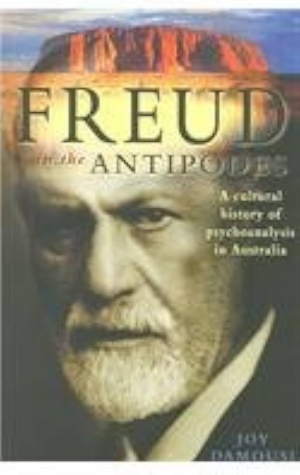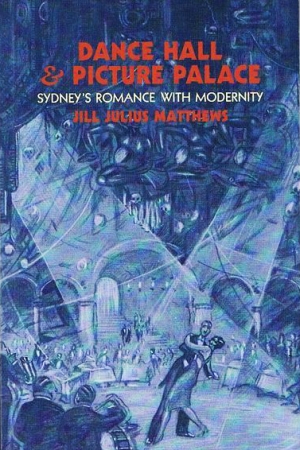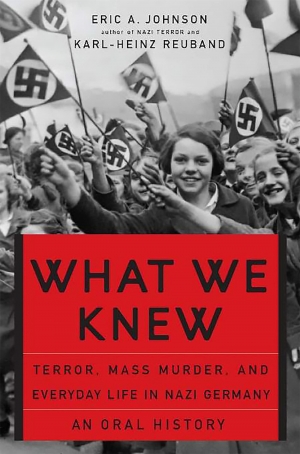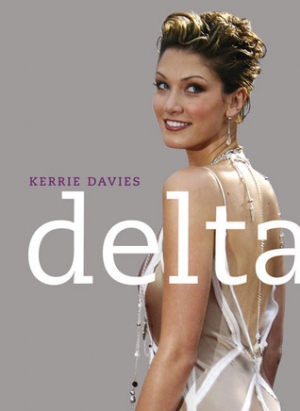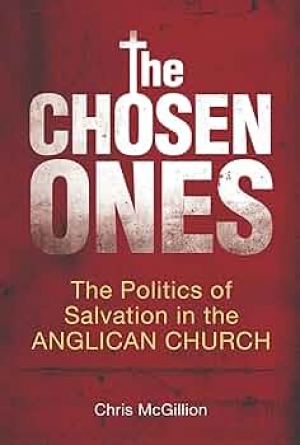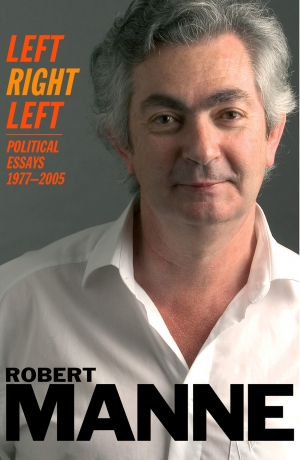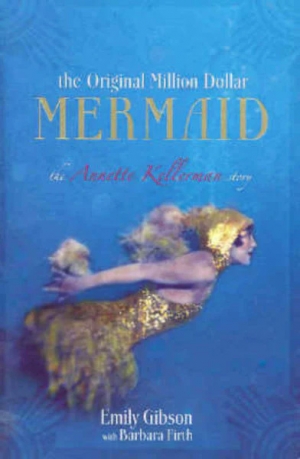Archive
Ter Borch would know him, this latter-day companion
of the cavalryman bowed on his mount,
shoulders and haunches sapped with exhaustion: and Sherman,
bright-eyed, red-handed, a hellion to order:
and the mailed believers of Krak.
Ron Spielman reviews ‘Freud in The Antipodes: A cultural history of psychoanalysis in Australia’ by Joy Damousi
Freud in the antipodes? Who cares? Well, I for one am very pleased that Joy Damousi, a professor of history at the University of Melbourne, cares enough to have assembled this compendium of historical information about the influence of Sigmund Freud’s ideas in Australian circles over the past one hundred years.
... (read more)Lisa Gorton reviews ‘Jacket’ edited by John Tranter and Pam Brown and ‘Space: New writing, no. 2’ edited by Anthony Lynch and David McCooey
John Tranter once remarked of his online journal, Jacket, ‘I’d guess that about half the readers have no real idea [it] comes from Australia. And I don’t feel it does. It comes from the Internet; it’s almost an outer-space thing.’ In fact, Jacket seems to come from the far more intimate and sociable realm of poets talking to each other. And the talk is endless.
... (read more)Alice Garner reviews ‘Dance Hall And Picture Palace: Sydney’s romance with modernity’ by Jill Julius Matthews
It’s Sydney – and Saturday night. The Great Jazz Orgy has begun … a million people are moving, turning, swaying, shuffling to the accompaniment of pianola, gramophone, or jazz band, and are beating out the barbaric time of syncopated melody. (Home magazine, 1923)
Historian Jill Julius Matthews takes us back to Sydney between the 1890s and the late 1920s, when cinema and the phonograph were exciting new imports, their impact on the local culture at once exhilarating and threatening. Matthews examines the way modernity – in the form of popular music, dance and film – was brought to and embraced by Sydneysiders. Her focus is on the ‘mediators’ of the new: entrepreneurs who imported the products and the technique of making them indispensable to people’s lives; the traditionalists who hoped to protect audiences from ‘corruption’ by seductive popular culture; and the government officials who negotiated these voices, seeking to regulate content.
... (read more)Andrea Goldsmith reviews ‘What We Knew: Terror, mass murder and everyday life in Nazi Germany’ by Eric Johnson and Karl Heinz Reuband
Three years ago in these pages, I wrote about the difficulties of exploring and understanding acts of human terror and brutality such as those that occurred during the Holocaust in Nazi Germany (‘Homer and the Holocaust’, ABR, November 2002). I noted that a certain etiquette had prevailed in the ever-expanding Holocaust canon, one that tended to privilege factual accounts – memoirs, histories, personal testimonies from the survivors themselves – over more imaginative treatments; how the former were regarded as more ‘morally responsible’. I noted, too, the paucity of material from German sources and how this had skewed understanding of the Holocaust. I argued that ‘sixty years on, there is something lacking in the way we have sought to understand the Holocaust; something in the approach that seems to confirm what we already know rather than illuminate the new’. What was required, I suggested, was more, not less, imaginative work.
... (read more)Kerrie Davies’s Delta is touted as ‘the first ever biography on Delta Goodrem’. This is not entirely surprising, given that the singer–songwriter is only twenty years old. But Davies makes no secret of the mythical terms in which she views her subject: ‘[Delta] has raged against failure and exulted in the euphoria of success. Delta has felt the power of youth and the fear of death. And she has fallen in love, had her heart broken, and been betrayed. For Delta, this is just the beginning.’
... (read more)Ann-Marie Priest reviews ‘The Chosen Ones: The politics of salvation in the Anglican Church’ by Chris McGillion
To the outsider, the Anglican Church may well seem one of the more liberal of the Christian denominations. While the Roman Catholic Church refuses even to debate the issues, Anglicans have gone ahead and ordained both women and homosexuals to the priesthood. In Canada, one Anglican diocese has gone so far as to bless same-sex marriages. Theologically, the best-selling books of retired US bishop John Shelby Spong represent progressive Anglicanism at its extreme. Not only does Spong argue that the world view of the Bible is incompatible with contemporary scientific knowledge, but he also suggests that St Paul was gay and that Christians need not believe in god.
... (read more)Barry Hill reviews ‘Left Right Left: Political Essays 1977–2005’ by Robert Manne
There are at least three reasons why we left-leaning, right-thinking, middle-class readers value Robert Manne’s essays. Over the last twenty years, he has – in books, as editor of Quadrant from 1988 to 1997, as a newspaper columnist – been writing with an uncommon intellectual lucidity. He is that rare combination of good scholar and good journalist. His style is transparently reasonable: his essays shine as models of speaking rationally.
... (read more)The music stopped
This had been expected.
Paintings were stilled
And books lay mute.
... (read more)Brian McFarlane reviews ‘The Original Million Dollar Mermaid: The Annette Kellerman story’ by Emily Gibson (with Barbara Firth)
There is something peculiarly off-putting about a book whose opening sentence reeks of inaccuracy: ‘In 1952, the first Technicolor water spectacular film The Million Dollar Mermaid thrilled the movie-going world.’ I am not talking about anything arcane here; just the sort of factual stuff anyone can check on the Internet. Esther Williams, star of Mermaid, the Annette Kellerman biopic, had appeared in about ten films since Bathing Beauty (1944) that might have qualified as ‘water spectacular films’. Not to harp, but one’s confidence is further undermined in the foreword by co-author Barbara Firth’s uninflected boast that in 1964 she ‘was invited to join the Ladies Committee of the Sydney Opera House Appeal Fund, which was at that time the most prestigious committee in Sydney’, rising in time to be its ‘honorary public relations officer’.
... (read more)
